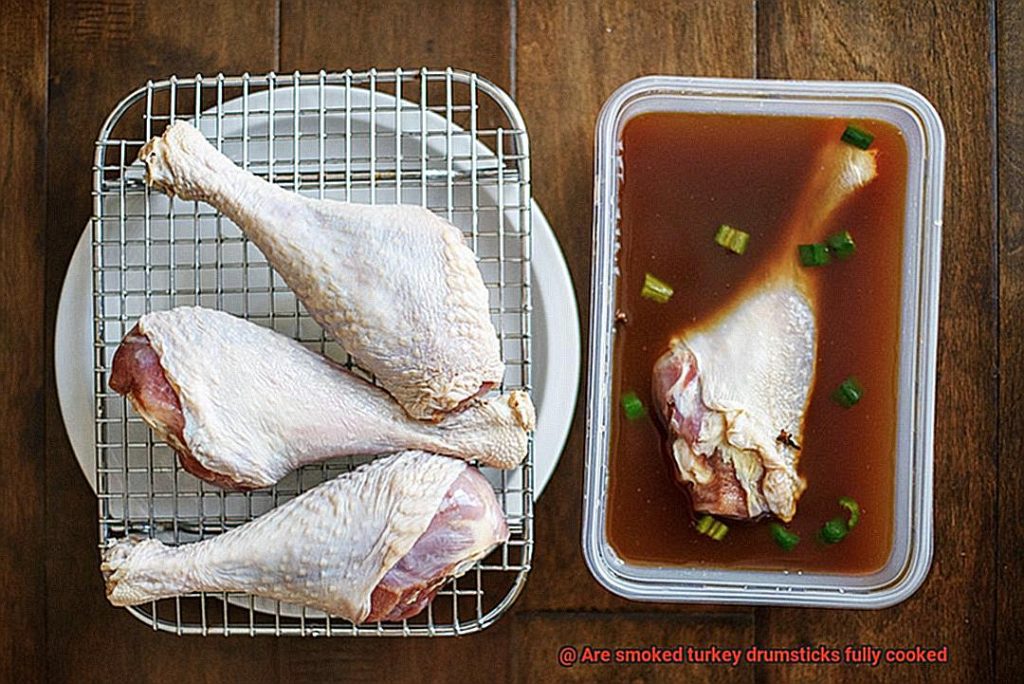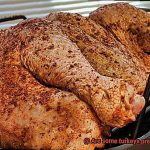Thanksgiving is just around the corner, and if you’re like me, you’re already planning your feast. And what’s a Thanksgiving meal without a perfectly cooked turkey? But let’s be real, cooking a turkey can be a hassle, especially when you have to mix up a brine solution and immerse the bird in it for hours. That’s why I’m here to answer the question on everyone’s mind: are some turkeys pre-brined?
The good news is that yes, some turkeys come pre-brined. This means you can skip the extra step of brining and save yourself some time and effort. But before you go ahead and purchase a pre-brined turkey, it’s important to understand what this actually means for the bird itself.
Different brands and types of turkeys may use different preparation methods when it comes to pre-brining. Some are injected with a brine solution, while others are soaked in a salty solution. This could mean that your bird is already seasoned and won’t require much additional seasoning. But does this affect the flavor or texture of the meat? That depends on the specific turkey.
In this blog post, we’ll dive into everything you need to know about pre-brined turkeys. We’ll discuss the benefits and drawbacks of purchasing one, how to tell if your turkey is pre-brined, and how it can affect your cooking process.
Whether you’re an experienced home cook or new to the kitchen, keep reading to impress your guests this Thanksgiving with all there is to know about pre-brined turkeys.
Contents
What is Brining?
Brining is an age-old technique that involves soaking meat in a saltwater solution before cooking. It’s a process that has stood the test of time and continues to be popular today, particularly for poultry like turkey.
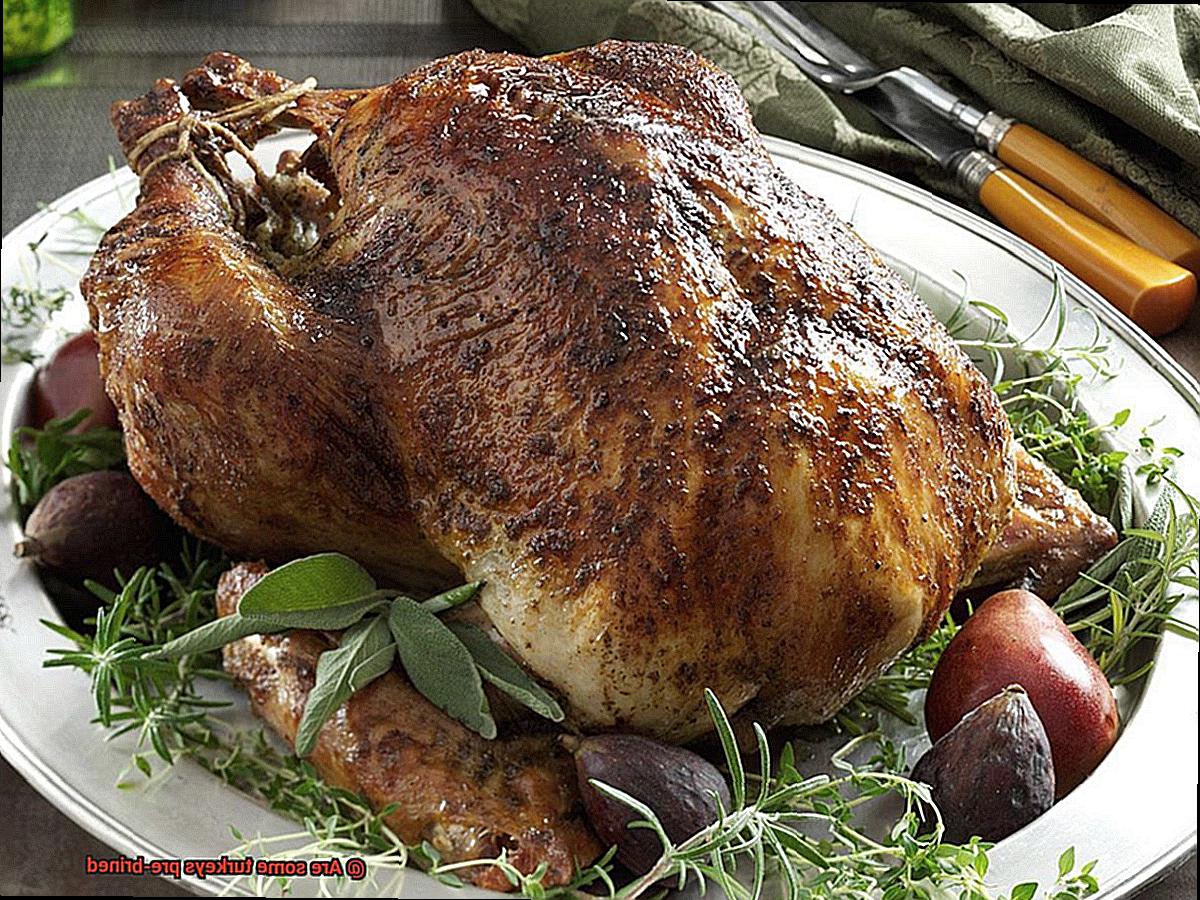
Why Brine?
Have you ever cooked a turkey only to find it dry and tough? Brining can help prevent this culinary disaster. When meat is cooked, the heat causes its proteins to contract and squeeze out the water, resulting in dry and chewy meat. This is where brining comes in handy. By soaking the meat in saltwater, it becomes more hydrated, less likely to dry out during cooking, and ultimately results in tender and juicy meat with enhanced flavor.
How does Brining Work?
The science behind brining is simple yet fascinating. The salt in the brine helps denature the proteins in the meat, making it more tender and juicy. It also breaks down the muscle fibers in the meat, allowing water and other flavors to be absorbed more easily. In addition to salt, you can add other ingredients to your brine solution such as sugar, herbs, and spices to add extra flavor and complexity to the meat.
Tips for Brining
If you’re planning on brining a turkey or another poultry dish, here are some tips to keep in mind:
- Check if your turkey is pre-brined before starting; check the label or ask your butcher for advice.
- Use non-reactive containers such as glass or plastic for your brine solution.
- Make sure your turkey is fully submerged in the brine solution.
- Don’t over-brine your turkey; oversalting can ruin your dish.
- Rinse your turkey thoroughly after brining to remove any excess salt.
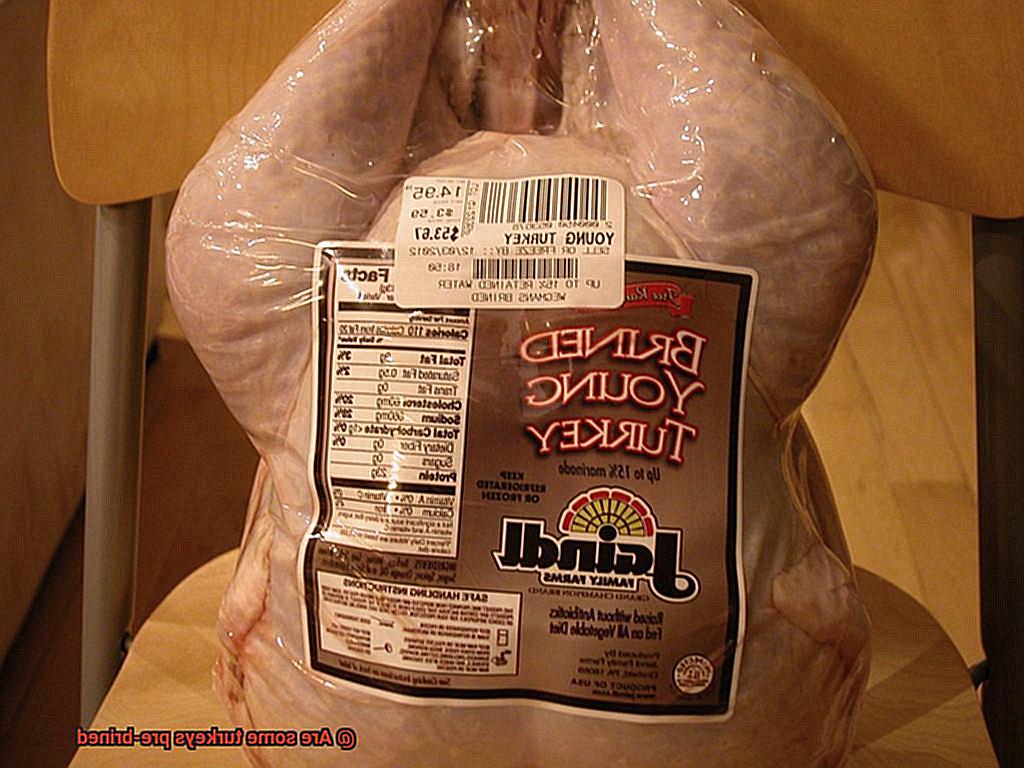
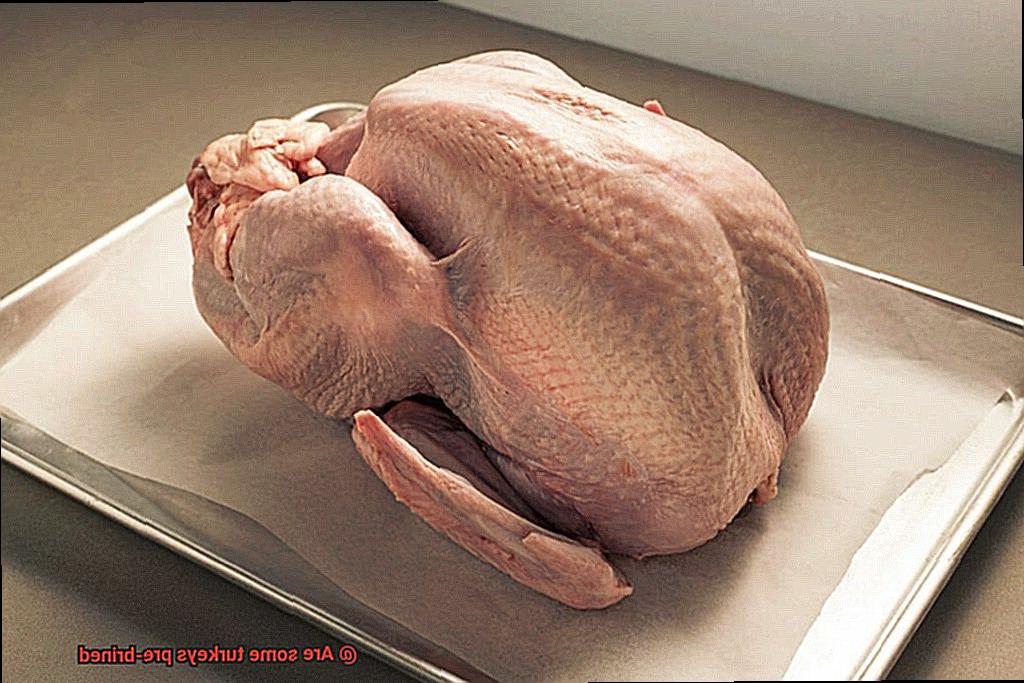
Are Some Turkeys Pre-Brined?
Yes, some turkeys are pre-brined, but there are some important things you need to consider before making a purchase.
Firstly, not all turkeys are pre-brined, so it’s crucial to check the label or ask your butcher for clarification. If you opt for a pre-brined turkey, there are a few things you must keep in mind:
- Saltiness: Pre-brining involves soaking the turkey in a salt solution to enhance its flavor and tenderness. However, the level of saltiness can vary widely among different brands. Therefore, it is essential to read the label carefully and adjust your seasoning accordingly. You don’t want an overly salty or bland turkey on your plate.
- Added Flavors: Some pre-brined turkeys come with added flavors or seasonings. These could be anything from herbs and spices to sugary glazes. If you have food allergies or dietary restrictions, it is crucial to check the label carefully.
- Convenience: Pre-brined turkeys can be a lifesaver if you’re short on time and looking for a hassle-free cooking process. However, they may cost more than non-brined turkeys.
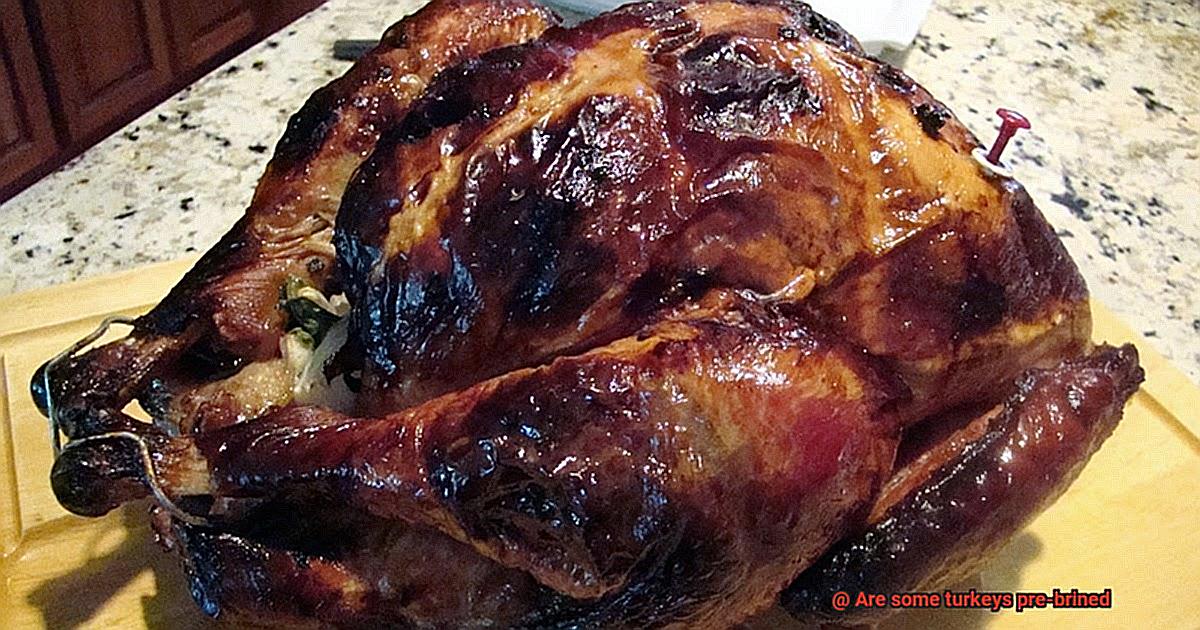
How to Check if a Turkey is Pre-Brined
When it comes to cooking a turkey, it’s essential to know whether or not the bird has been pre-brined. Pre-brining involves soaking the turkey in a saltwater solution before packaging and selling it. This process can significantly impact the taste and texture of the meat, and alter how you season and cook the turkey.
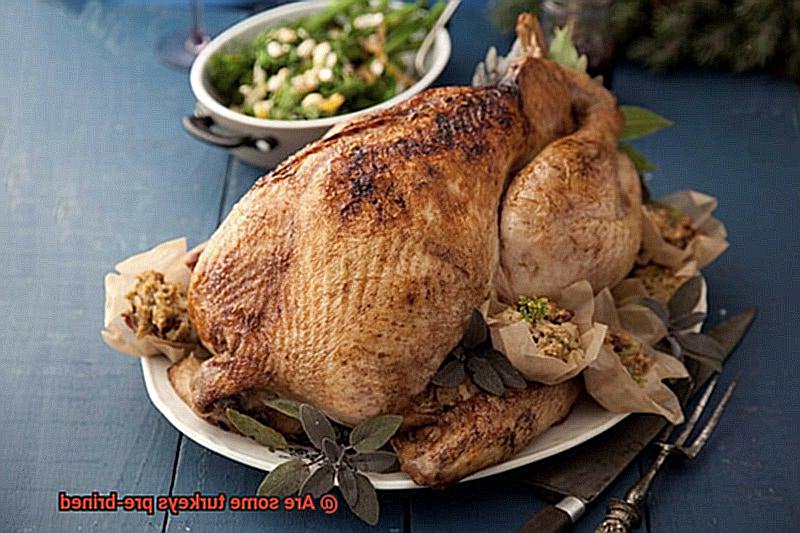
To find out if your turkey has been pre-brined, here are some helpful tips:
- Look for labeling on the packaging: Most pre-brined turkeys will have labeling on the packaging that indicates they have been pre-seasoned, pre-basted, or self-basting. If you notice any of these terms, it’s an indication that the turkey has been brined.
-
Check the ingredients list: If there is no labeling on the packaging, read the ingredients list carefully. Brining solutions typically include salt or sodium phosphate as their primary components. If any of these ingredients are listed, then there’s a high likelihood that your turkey has been pre-brined.
- Feel the weight of the turkey: Pre-brined turkeys tend to feel heavier and denser than non-brined turkeys due to their added water weight. You can determine if your turkey has been brined by gently squeezing it. If it feels heavy and plump, then it may be pre-brined.
- Ask the butcher: If you’re buying your turkey from a local butcher, don’t hesitate to ask whether or not it has been pre-brined. They are often knowledgeable about how their products are prepared and can provide valuable information.
- Contact the manufacturer or seller: If you’re still unsure whether or not your turkey has been pre-brined, contact the manufacturer or seller for clarification. They should be able to provide you with additional details about how the bird was processed.
Benefits of Pre-Brined Turkeys
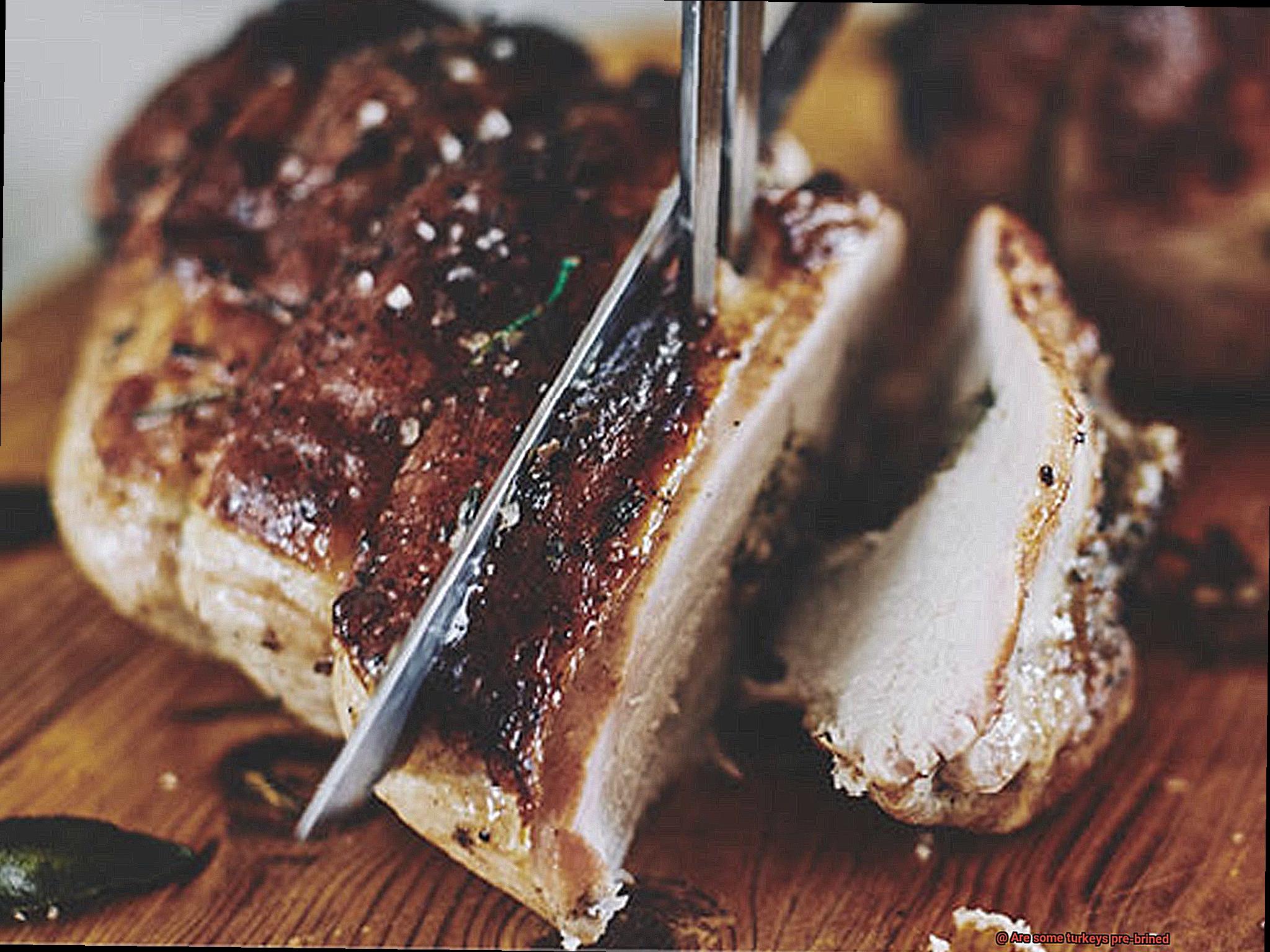
As an expert in all things turkey, I can confidently say that pre-brined turkeys are the way to go.
One of the most significant benefits of pre-brined turkeys is that they save time and effort. No need to worry about finding space for a large container or buying additional ingredients – simply remove the turkey from its packaging and start cooking. This is especially beneficial for those who may not have the time or expertise to properly brine their own turkey.
But the benefits don’t stop there. Pre-brined turkeys are also known for their juicy and flavorful meat. The saltwater solution helps to keep the meat moist during cooking, resulting in a succulent bird with enhanced natural flavors. Plus, the added flavors from the brine only make the turkey even more delicious.
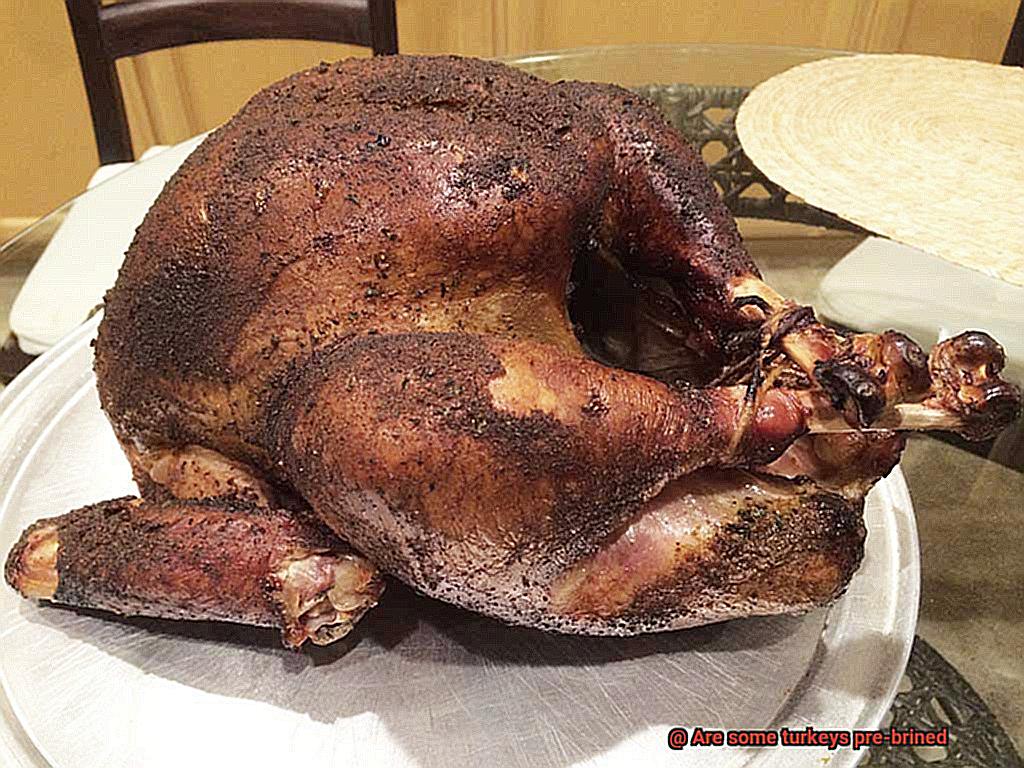
For those of you with smaller kitchens or limited equipment, pre-brined turkeys are a lifesaver. Since the turkey has already been brined, there is no need to worry about finding space for a large container or buying additional ingredients. Just take the turkey out of its packaging and get cooking.
In addition, choosing a pre-brined turkey can be a great option for those who are new to cooking or may be intimidated by the process of brining their own bird. By opting for a pre-brined turkey, you can ensure that your meal will turn out well without having to worry about any potential mistakes.
Disadvantages of Pre-Brined Turkeys
Gobble, gobble, fellow turkey aficionados. While pre-brined turkeys may seem like a quick and easy solution to your Thanksgiving meal prep woes, there are a few disadvantages you should be aware of before making your purchase.
First on our list of drawbacks is the high sodium content. Because pre-brining involves soaking the turkey in a saltwater solution, it’s not uncommon for pre-brined turkeys to be loaded with excess sodium. For those with high blood pressure or other health concerns, this can be problematic. To avoid any health risks, it’s essential to read the label and ensure that the sodium levels are within your desired range.
Another disadvantage of pre-brined turkeys is their limited flavor options. When you opt for a pre-brined turkey, you’re stuck with the flavors that are available, which may not suit your preferences. If you’re someone who likes to experiment with new flavor profiles, then a pre-brined option may not be the best fit for you.
Moreover, adjusting salt levels can be challenging with pre-brined turkeys. Once the turkey has been brined, there’s little you can do to modify its salt levels. While rinsing the turkey before cooking can help remove some salt, it won’t make a significant difference.
Additionally, when you brine your own turkey, you have complete control over the ingredients that go into the brine. With pre-brined turkeys, however, you’re at the mercy of the manufacturer’s recipe. This means that you may not know precisely what’s in the brine or how it will impact your turkey’s flavor.
Finally, let’s talk about price. Pre-brined turkeys can be more expensive than unbrined options due to the added cost of brining. If you’re on a budget, brining your own turkey at home may be a more cost-effective option.
Alternatives to Pre-Brined Turkeys
Thanksgiving isn’t complete without a succulent turkey as the centerpiece of your feast. But, although pre-brined turkeys may seem like an easy option, they can come with their downsides, including high sodium levels and limited flavor options. Luckily, there are plenty of alternatives to pre-brined turkeys that will still deliver juicy and flavorful results. Here are some exciting options to consider:
- Dry-Brining: Want to infuse your turkey with flavor without the added moisture of a wet brine? Try dry-brining. This method involves rubbing a mixture of salt, sugar, and herbs onto the turkey and leaving it uncovered in the refrigerator for several hours or overnight. The salt penetrates the meat, locking in moisture during cooking and adding delicious flavor.
- Injecting: If you want to add flavor directly into the interior of your turkey, injecting is an excellent option. With a flavor injector, you can add a marinade or seasoning mixture directly into the turkey’s flesh, giving you more control over the taste profile. However, always remember to use a clean and sterilized injector needle to avoid contamination.
- Dry Rubbing: For those who relish the idea of having complete control over their turkey’s flavor profile, dry rubbing is an ideal option. You can create your own blend of herbs and spices to season the bird with and rub it under the skin and inside the cavity for maximum flavor.
Tips for Brining Your Own Turkey
Brining a turkey is a popular technique that can take your Thanksgiving feast to the next level. To ensure that your homemade brined turkey is a delicious and flavorful addition to your dinner table, follow these simple steps:
Choose the Right Container
The first step in brining a turkey is choosing the right container. You need a container that is large enough to hold the turkey and the brine solution. A large pot, bucket, or clean cooler can work well.
Mix Your Brine Solution
A basic brine recipe includes one cup of salt per gallon of water. However, you can also add other ingredients like sugar, herbs, and spices for added flavor. Get creative and experiment with different combinations.
Submerge the Turkey
Once you have mixed your brine solution, fully submerge your turkey in the container. Make sure the turkey is completely covered in the solution so that it can absorb all of the flavors.
Refrigerate for the Right Amount of Time
The amount of time needed to brine a turkey will depend on its size, but generally, you should plan on brining for 1 hour per pound of turkey. Make sure to keep the turkey refrigerated during this time to prevent bacteria growth.
Rinse and Dry the Turkey
After removing the turkey from the brine solution, rinse it thoroughly with cold water and pat it dry with paper towels before cooking. This will help remove any excess salt and ensure crispy skin during cooking.
Why bother with brining your own turkey? Brining helps to tenderize the meat and enhance its flavor by infusing it with delicious herbs and spices. It’s also a great way to control the amount of salt and other ingredients used in the brine, ensuring that your turkey is cooked to perfection.
7YeNMTnrdA8″ >
Conclusion
In summary, the answer to the question “Are some turkeys pre-brined?” is a resounding yes. This process involves soaking the turkey in a saltwater solution before packaging and selling it, resulting in a bird that’s bursting with flavor and tenderness. However, it’s important to note that not all turkeys are pre-brined, so be sure to check the label or ask your butcher for clarification.
While pre-brined turkeys can save you time and effort, they do come with some downsides. For one thing, they can be loaded with excess sodium, which can limit your flavor options. Additionally, adjusting salt levels can be tricky since once the turkey has been brined, there’s little you can do to modify its salt content. And let’s not forget about the added expense – pre-brined turkeys are often pricier than their unbrined counterparts due to the cost of brining.
Fortunately, there are plenty of alternatives to pre-brined turkeys that will still deliver juicy and flavorful results. Dry-brining, injecting, and dry rubbing are all popular methods that allow you to infuse your turkey with delicious herbs and spices while giving you control over your ingredients.
And if you’re up for a challenge (or just feeling ambitious), brining your own turkey is an excellent way to take your Thanksgiving feast to new heights.
Ultimately, whether you choose a pre-brined turkey or decide to go another route entirely depends on your personal preferences and cooking skills.

